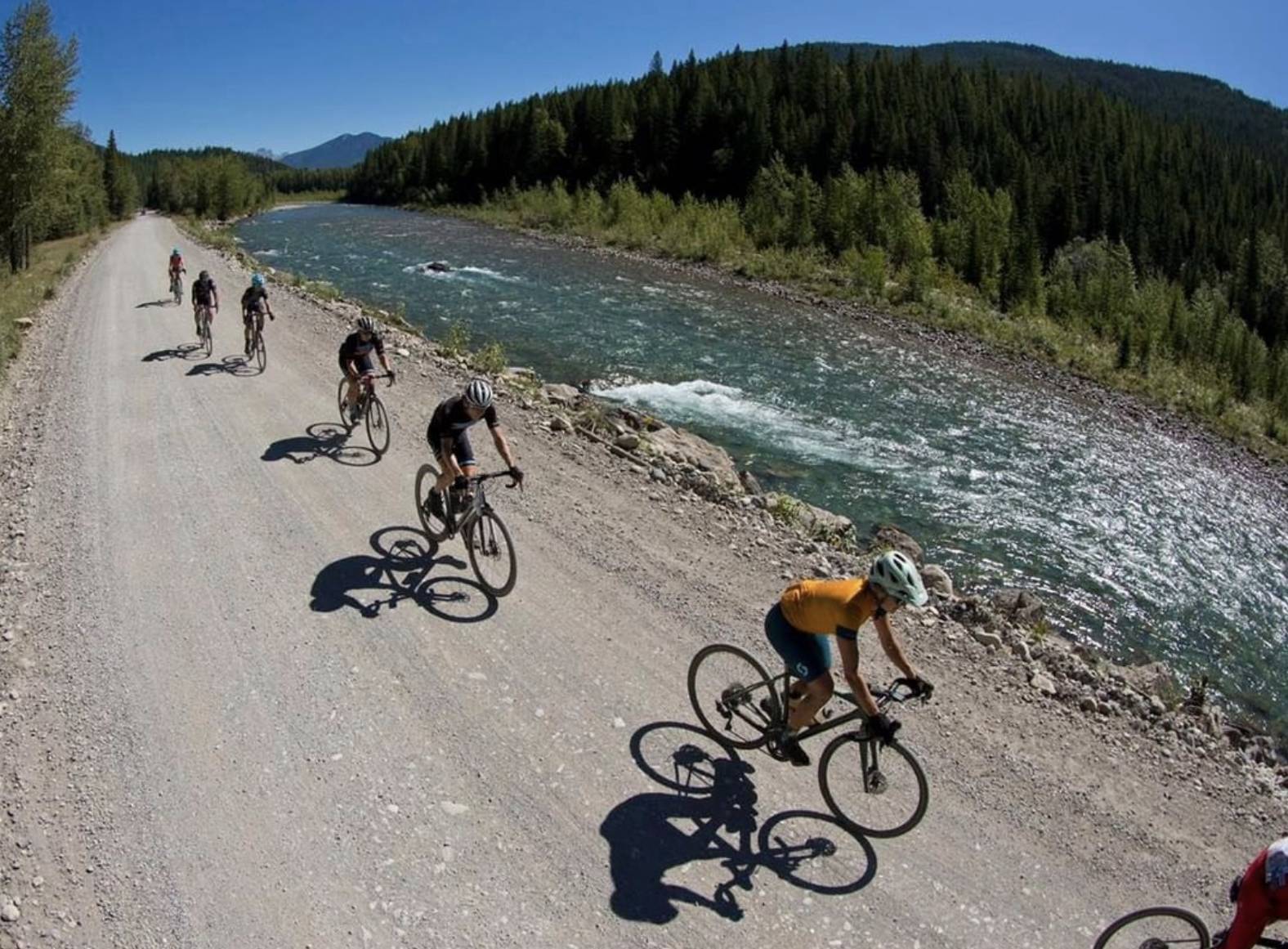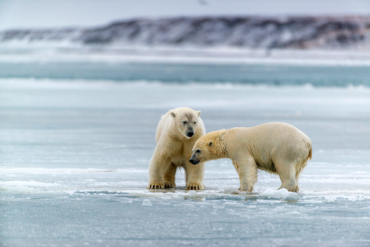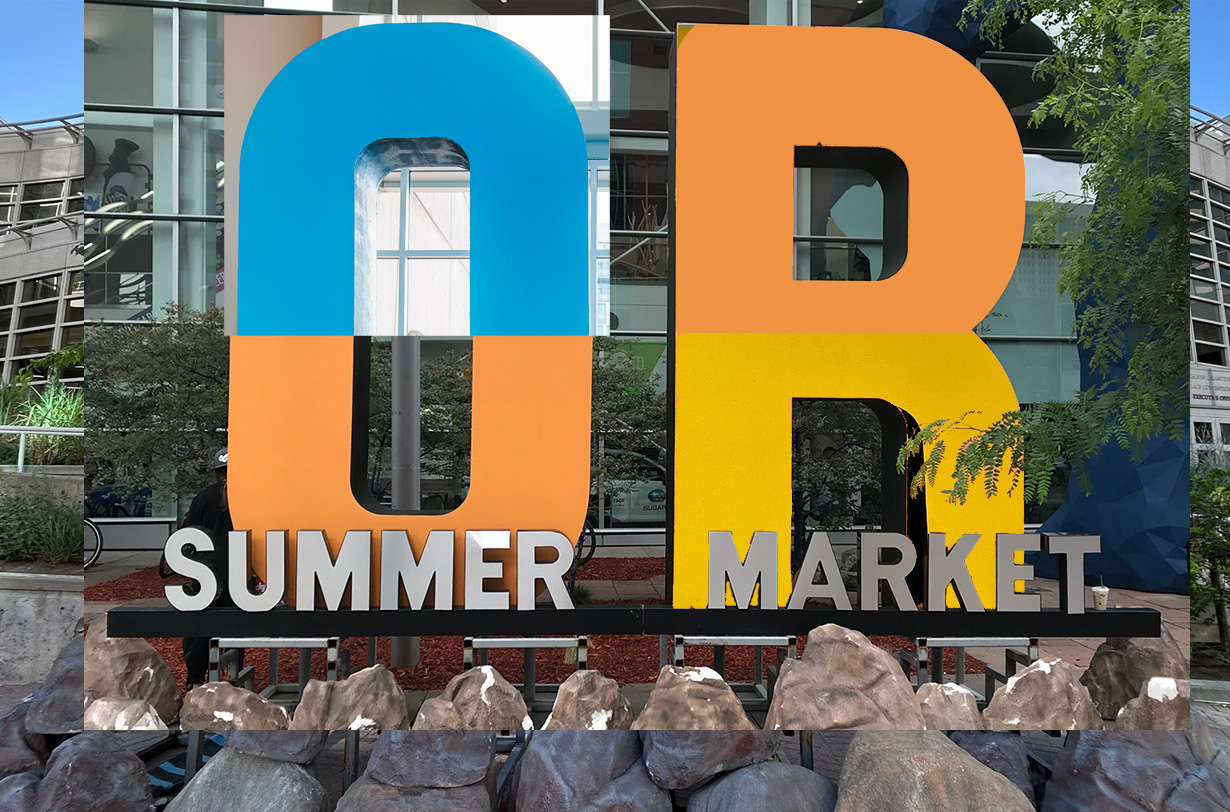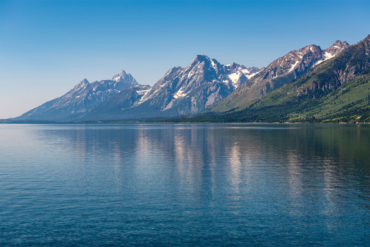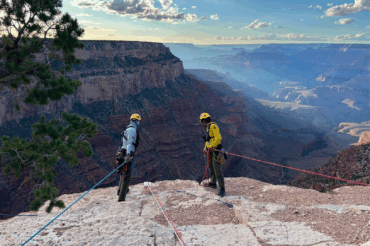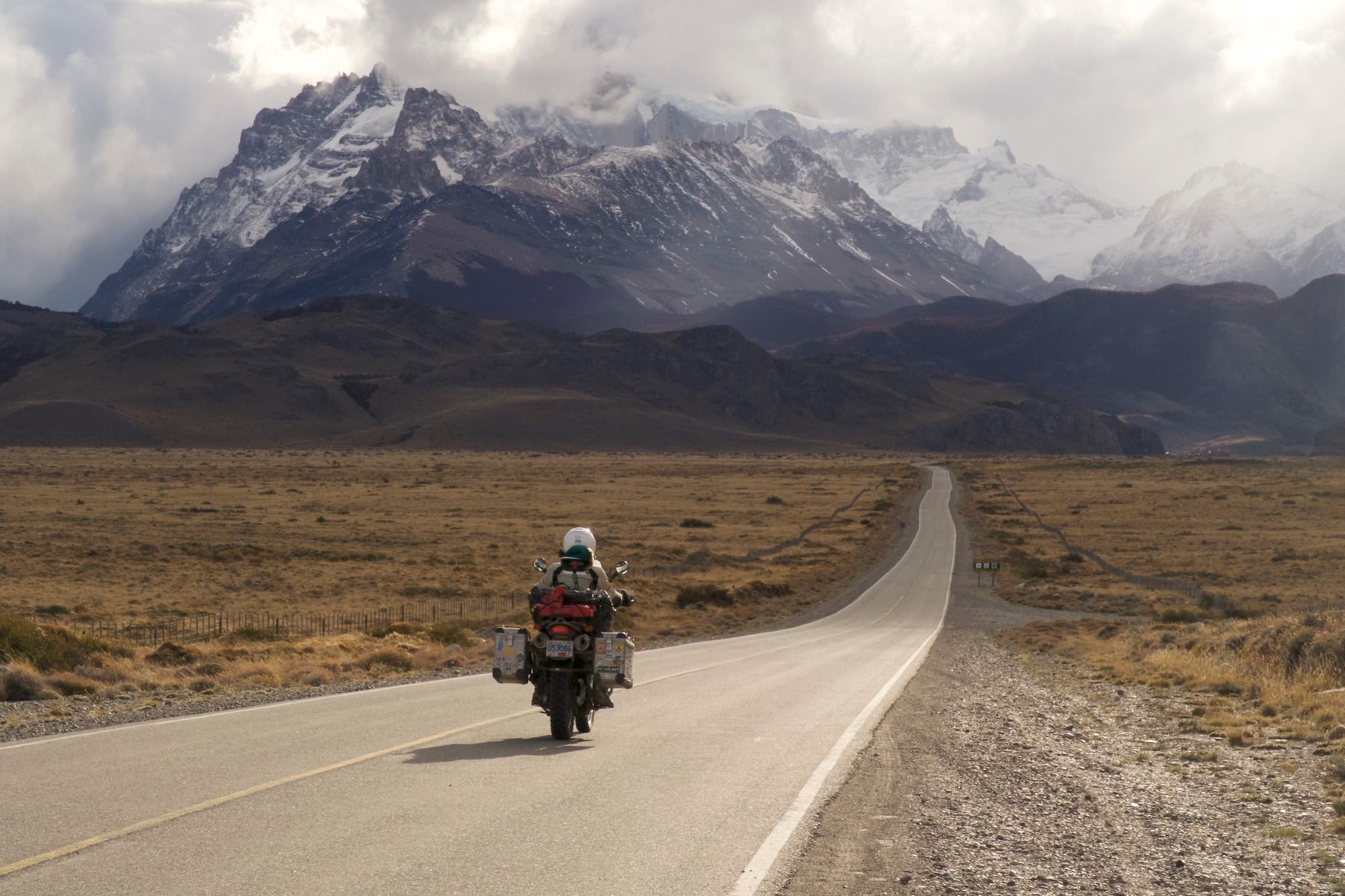Outdoor Retailer show director Marisa Nicholson explains why the show is returning to Utah — despite lingering doubt and unrest among some of the industry’s biggest brands.
In March, show organizers for the twice-annual Outdoor Retailer (OR) event — the industry’s largest trade show and gathering place — made big waves, announcing its decision to leave Denver.
The move took many by surprise, and not just because Colorado has become the de facto headquarters for so many outdoor businesses (GearJunkie included). Rather, because the show revealed its new home would be its old home: Salt Lake City.
For those outside the industry, OR made Utah its home base for more than 20 years. But that cozy relationship crumbled in 2017 when then-Governor Gary Herbert, behind the blessing of a regulatory-averse Trump administration, dismantled Obama-era public lands protections around two newly minted national monuments: Bears Ears and Grand Staircase-Escalante.
In response, the industry’s biggest and most recognizable brands — including Patagonia, REI, and The North Face — vowed to boycott the event, urging the show’s organizers to relocate OR somewhere with greater social and political alignment. The rest was history … until now.
We sat down with the show’s director and vice president, Marisa Nicholson, to understand why and how Utah won back Outdoor Retailer. And more importantly, to see if the issues that spurred the protests that forced the show to leave have been addressed.
Moving Back to Utah: Q&A With Outdoor Retailer

GearJunkie: What was behind this decision to move back to Utah, and were those factors from 2017 addressed?
Nicholson: In May of last year, we started surveying our customers around timing and future location — something we typically did even in Utah when our contract was about 18 months out from expiring — to get a better understanding and make sure that we were in the right time frame, and continuing to serve the market needs.
We ultimately gathered a lot of feedback from customers around the fact that we haven’t really been able to recreate the demo that we had been able to do previously [in Utah], and people thought that was important.
The overall cost has gone up, and the cost of travel was more in Denver than it had been in Salt Lake City. [And] the timing was critical, especially with the supply chain and issues the pandemic had an impact on.
Based on all of that information, we essentially put together a survey and put Utah back on there. We had a lot of customers continue to say they felt the show should be in Utah.
When we got our survey results back, we had ongoing conversations to ensure the quality of information we got. We were able to follow up with more qualitative data by having one-on-one conversations with both brands and retailers, getting their feedback to make sure we aligned with what the industry wanted for the timing of the show, location of the show, and purpose of the show.
Can you share the results of the survey?
Denver and Salt Lake City had always been the top two locations that our industry indicated as preferred locations.
Ultimately, Salt Lake City was the preferred location across the community. And in addition to that, the timing of the show was a critical factor. The dates we were able to secure in Denver around the January show were much later than what our industry indicated they needed.
Is it fair to say that the locations between Denver and Salt Lake City were pretty close in the survey, and the timing was more the deciding factor?
I would say that. Denver [has] been a great host to us for the last 5 years, but I would say the dates were a deciding factor — and the demo aspect is also a pretty critical factor in it.
Was Utah able to address the concerns that initially motivated OR to leave Salt Lake City?
In the conversations we’ve had with Mayor Mendenhall and Mayor Wilson [of Utah], as well as different officials [including] Pitt Grewe of the outdoor recreation committee, we understood that what they value and what they’re supporting aligns very closely with what our industry wants and needs.
Working closely with them, [we’ve] helped form a committee called Business With Purpose that’s going to have both state and local officials, and members from our community — the outdoor industry — to have a dialogue and make sure there’s transparency and conversations around the things that are valuable and important to our industry. And how we can work together to drive those initiatives forward.

What does Business With Purpose comprise and what is it working toward?
The Business With Purpose working group is a partnership with Visit Salt Lake, comprising Utah and Salt Lake City leaders, outdoor recreation and land managers, and representatives from the outdoor and wintersports industries.
It will focus on building relationships and seeking opportunities around public lands, outdoor recreation, access, and conservation. This group will also initiate stewardship projects and direct funds generated from the show’s presence in Salt Lake into related nonprofit programs.
Have you had conversations with some of the key brands that have been most vocal — specifically REI, The North Face, and Patagonia — about this?
Yes. We have communicated with all of our customers and shared with them the plans.
Does it seem like everybody’s on board?
For the most part; we’ve gotten a lot of positive feedback, but there are definitely still customers who are maybe more wait-and-see.
But I would say the overwhelming sentiment that I and my team have received is that there’s a lot of excitement around the move to Utah and the different elements we’re going to add to create excitement around the show.
Do you feel like everybody who expressed concerns is open to dialogue and that the needle is moving to address their concern?
From our perspective, we are open to feedback, we want to have those conversations, and we want to do everything we can to ensure that people feel like they’re being heard.
There is the opportunity for them to participate in any capacity, whether it’s supporting advocacy, talking about their own initiatives, or supporting specialty retail.
In 2017, there were two major camps around staying or leaving Utah: Protesting and holding authorities to account by pulling out and moving, versus doing more good by staying in a place and trying to make change. Where do you land?
In 2017, we were trying to work closely with our industry to understand their needs and figure out a way to accommodate it in a way that wouldn’t fracture the industry.
Ultimately, we made the decision to find a new home. But I do believe that just leaving left a void and didn’t actually effect the change I think the industry had hoped leaving would.
And I do think the opportunity to have a seat at the table, and work with state and local officials on things that are important to our industry — how we can align and work to make progress — is going to be more beneficial to everyone.
How do you respond to those brands that say they “won’t be part of the show in Utah unless something changes”?
I’ve been with the show for 19 years, and I think that’s what I’ve always thought is so special about this community: the ability to compete with each other, but then also roll up their sleeves and work hard towards the things that are most important around what this industry values.
I think this is an opportunity for our industry to come together to have the conversation, have a seat at the table, and to make sure that the things that are of interest to us — the protection of public lands, access to public lands, the things that our industry needs in order to grow and be vital — all are the things that we can work on together.
Utah is a beautiful state, with so much outdoor recreation and so many public lands. Our industry can definitely stand to work closely with state and local officials to ensure all that stays intact and allows for our industry and more participants to enjoy.
That will ultimately drive the economy for the outdoor industry.
You said costs have been going up since the move to Denver. Does this mean that Salt Lake City will offer lower costs and greater access to exhibit at the show?
Yes. One of the biggest changes was that when we moved from Salt Lake City to Denver, we moved from a right-to-work state, which in Salt Lake City allows for the exhibitor to essentially bring in and build their own booths.
They can hire labor if they want to but aren’t forced to; it’s not rolled into union labor, which is a rule in Denver. So people can decide, “I have the skills, I have the time, I’m gonna take this on myself, or pay somebody else to do it.”
Overall, does Outdoor Retailer benefit from bouncing around and providing new looks in new venues, or is it healthier for the show to have a single home?
At the end of the day, making sure that we’re able to provide the space for the industry to gather is the most important thing.
Part of deciding what city [can host] is to ensure the right infrastructure is in place — it’s got the right size convention center, it has enough hotels, and it’s got enough lift in the airport for both domestic and international flights.
We have to take all of that into consideration just to create the foundation. But then it’s about all of the other building blocks that help to make the show so special — the ability to be 30 minutes away from the slopes in the winter and water for demos in the summertime — critical factors to creating the experience that our community desires and has helped create.
It’s about business, but it’s also that the community just loves being together, like a homecoming or family reunion.
Will this look and feel like the Salt Lake City shows of the past?
I remember being at the show in Salt Lake City and hearing a retailer saying, “I have an appointment with this footwear company here and then I’m going to run all the way over to this area over there.”
We have an opportunity to go back and create some community spaces on the show floor that help the retailers and the industry as a whole feel like they are a part of something bigger — really trying to create a floorplan that’s more user-friendly for the retailer.
Also, we will be bringing in a consumer element to the summer show. We’re not planning to open the doors of the convention center to the public — that will still remain very core to the B2B — but it’s thinking beyond the walls of the convention center and creating opportunities for brands and retailers to engage with consumers, and allow for consumers to understand and learn from our community as well.
Will that be the first time Outdoor Retailer will have some sort of public-facing element?
Well, it’s going to be bigger than the things we’ve done before. We were starting to create these in smaller moments once we moved to Denver. Partnering with both the 5Point and Backcountry film festivals allowed for these hybrid events to be open to consumers with the “Night of Stoke.”
Also, through “Winter on the Rocks,” we’ve supported Icelantic Skis on their concert they host at Red Rocks timed around the winter show.
We also hosted “Gather” with Basecamp Outdoor [an outdoor industry job and networking group] last summer, and that was an opportunity to bring consumers in to connect with members of the community for networking.
So we’ve had smaller events where we’ve thought about how we could meaningfully add these elements to the show. But we’re thinking much bigger, and that’s part of what we’ve been doing during the pandemic — thinking about how else we can serve the market and things we can do around the event to ensure value.
We’re gonna launch in June 2023. And we’ll share more information about it at the upcoming [2022] June show on what that will look like.
Are trade shows as relevant as they were before the pandemic?
I would say that through the pandemic, everyone had to learn to do business differently, and using digital tools has become even more important. It’s all moved along more quickly from the adoption standpoint, even though people have been talking about it for years.
From our perspective, we have looked at how we help support these new digital tools and ways of doing business while also providing the value you get through an in-person event.
One of the things that happened during the pandemic was the acquisition of Elastic Suite [by Emerald], which is essentially a backend selling tool. This [would] allow smaller- and medium-sized companies to enjoy the benefits of that platform without necessarily having to buy the full backend e-commerce portion.
At the end of the day, trade shows are incredibly important for communities. It’s an opportunity for the community to connect and to learn, and to feel part of something bigger.
And for small- to medium-sized companies, it’s one of the few opportunities they have to move the sales process to be able to get commerce done. They don’t typically get to be part of buying groups; they don’t have the means to have showrooms. So this is their main opportunity to connect, have those top-to-top meetings, to be discovered and discover.
What are you most excited about for Outdoor Retailer’s return to Salt Lake City?
What I’ve been hearing from customers is the nostalgia. The industry grew up and became a powerhouse over the 20-plus years that we were in Salt Lake City. I hear the stories about running into people or having their first interaction with a certain retailer here.
I’m just excited to see the smile on everyone’s faces and have the opportunity to bring this community together in a space that the industry remembers.


